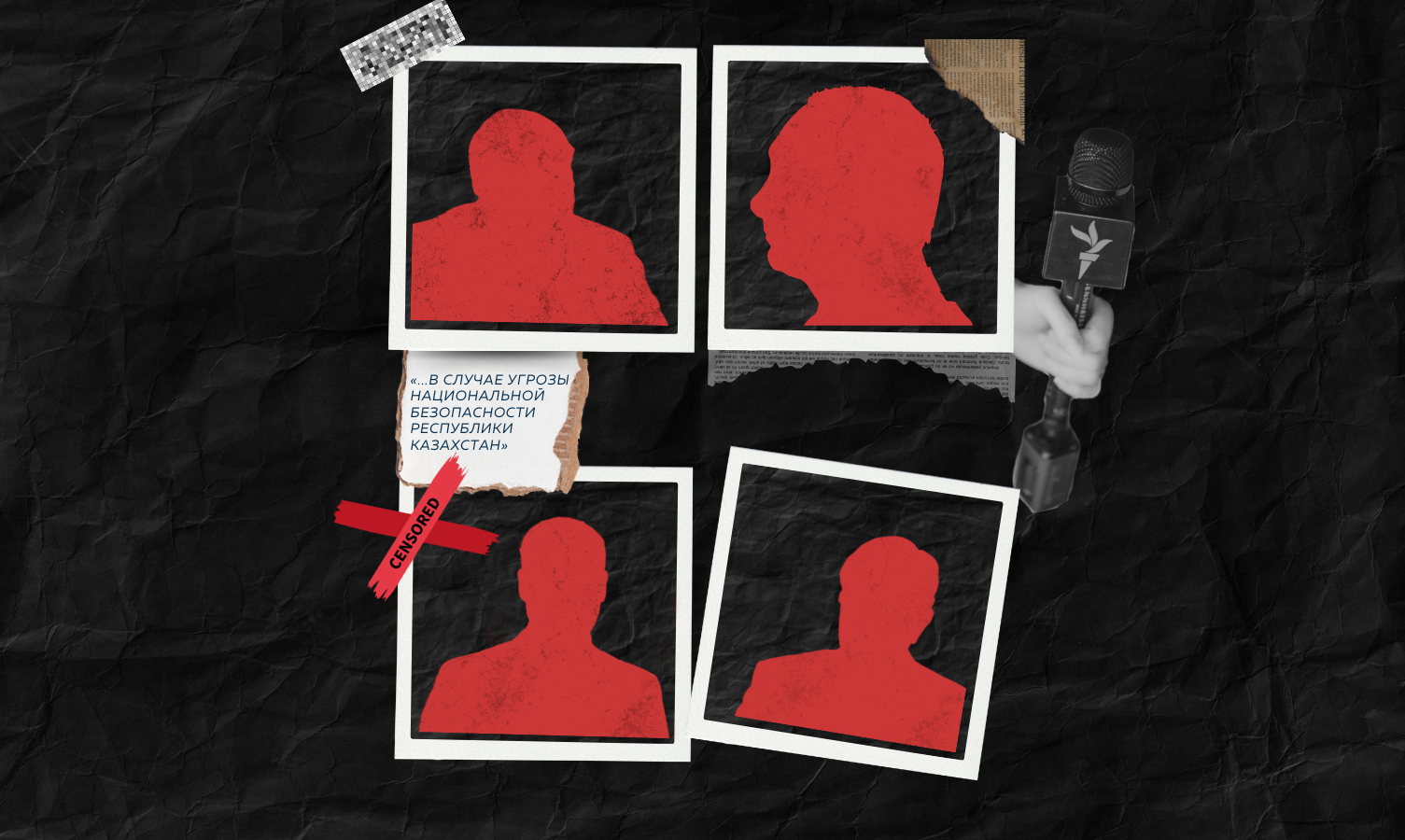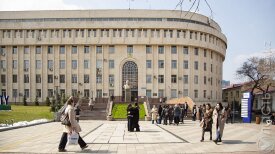Members of Parliament in Kazakhstan proposed legal amendments that could lead to the banning of Azattyk, the local branch of Radio Free Europe/Radio Liberty. This is happening against the backdrop of the ministry of foreign affairs repeatedly refusing to grant their journalists accreditation. That 36 Azattyk journalists were rejected accreditation cannot be called a coincidence.
One of the sponsors of the proposed changes to the legislation on mass media says these would “streamline the market”. He also refutes the idea that the changes are directly aimed at Azattyk.
“We do not write laws exclusively for some particular publication,” MP Nikita Shatalov told Azattyk.
The deputy may not know or remember, but in Kazakhstan laws have already been written “exclusively for some particular publication.” In 2006, the media law was changed so that Irina Petrushova, editor-in-chief and owner of then-popular weekly newspaper Respublika, would not be able to continue working.
Petrushova had Russian citizenship, and the changes introduced a provision by which only a citizen of Kazakhstan could be the editor-in-chief of a Kazakhstan-based publication. Another amendment provided that a foreigner could only own 20% of a media outlet. Government officials directly cited Respublika as an example, pointing out the need to change the law. Even without this example, however, everyone had understood what was really going on. Just like now.
Court trials let to Respublika shutting down, its editorial office was smashed, its circulation was halted, and its director was sent to pre-trial detention.
After a decade, Respublika is no longer a newspaper, but it keeps publishing online. Since its closure, other publications that investigate, analyze, and write about core issues have appeared in Kazakhstan.
It's a journalist's job to write about core issues. Not praising the authorities, not pretending that protests are not taking place and activists are not being detained. Otherwise it’s not journalism, but propaganda - which coincidentally could land you a job as a deputy.
This is precisely where the value of Azattyk lies: They show the real picture. Maybe this picture is not pleasant from a nice office in Astana, but it is what it is. Without this picture, having lost contact with reality, it will become more difficult for the country’s leadership to resolve the core issues. This has already happened in Kazakhstan’s recent history.
Rubber-stamping the “Azattyk amendments” now, among other things, will put Kazakhstan in the league of the worst of the worst, next to those who have already made every effort to stifle Radio Free Europe and its local editorial offices: Alexander Lukashenko, Vladimir Putin, Sadyr Japarov, and others. This space is crowded, but there’s always room for one more.
The authorities can now pick sides, for or against press freedom. Just like Azattyk journalists must pick whether to continue their work or not. We hope that Azattyk will choose to keep working. And we will be on their side.
Поддержите журналистику, которой доверяют.








